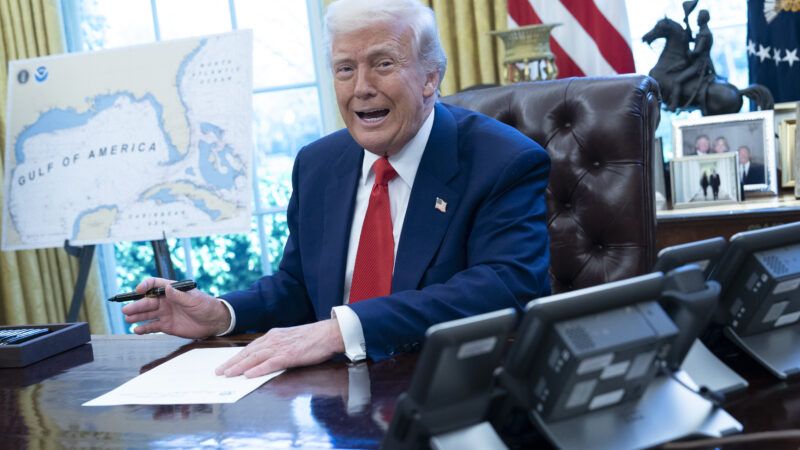America Gained Nothing From Trump's Latest Tariff Stunt
There were no deals. There were no wins. There was no plan.

A few hours after President Donald Trump announced an abrupt and partial reversal of his plans to slap huge tariffs on virtually all imports to the United States, a reporter asked him to explain the process that led to that decision.
Trump's response was a telling one.
"It came together earlier this morning," Trump explained. "We didn't have access to lawyers—we just wrote it up from our hearts, right? It was written from the heart."
Perhaps that's true. Certainly, Trump does not seem to be leading with his head.
Another telling scene from Wednesday: U.S. Trade Representative Jamieson Greer, the man who is ostensibly responsible for implementing Trump's trade policies, was testifying before the House Ways and Means Committee when Trump announced the tariff "pause." Greer was quite literally in the middle of defending Trump's higher tariffs when he learned that those tariffs were being postponed.
"It looks like your boss just pulled out the rug from under you and paused the tariffs," Rep. Steven Horsford (D–Nev.) said at the time.
The dramatic reversal seems to have been made after an Oval Office meeting with Treasury Secretary Scott Bessent and Commerce Secretary Howard Lutnick, The Wall Street Journal reports. It's possible that Trump was influenced by JPMorgan Chase CEO Jamie Dimon's warning of a coming recession, or by Wednesday morning's bond market chaos.
Yes, Trump made the right decision in postponing some of his tariffs for 90 days—though it would have been better to cancel all of them permanently—but how are American businesses supposed to plan for the future in a political and economic environment when even the U.S. trade representative is unaware of what could change from one day to the next? Trump claims that he wants the tariffs to encourage more businesses to invest in the United States—thus avoiding the sting of tariffs—but it's hard to imagine any business executive making an expensive decision like that when the White House is a factory of economic uncertainty.
In short: There is no plan. There never was one. That fact has become painfully obvious in the past week.
Like the underpants gnomes of South Park lore, Trump believed that tariffs would lead directly to profits, and neither he nor anyone in the White House seems to have given a single thought as to what steps might be necessary in between—or whether such an outcome was even possible.
Still, Trump's dutiful staffers and sycophants did their best to spin this as a win. Trump's partial U-turn on higher tariffs was "the art of the deal," said White House press secretary Karoline Leavitt. If that's true, one must wonder, what did America get in this deal? Meanwhile, Bessent told reporters that this was Trump's "strategy all along." If that was the case, why didn't Greer know about it?
This is an insane way to run the world's biggest economy. After all, even with the higher tariffs temporarily paused, the average tariff rate on American imports has still skyrocketed to over 25 percent and a trade war with China will be economically damaging, particularly for lower-income Americans.
"Markets want stability. Congress can provide it by taking back the tariff-making power it delegated to the president," said Ryan Young, chief economist at the Competitive Enterprise Institute, a free market think tank, in a statement responding to Trump's decision to pause some tariffs. "Trump will not use those powers responsibly, and he is not going to change. Congress must take away his keys."
But while all this was happening Wednesday, House Republicans were once again making it more difficult for Congress to check Trump's power. As part of a House rules package, Republicans eliminated a provision to fast-track bills that end executive emergency declarations like the one Trump has used to impose these tariffs.
"Republicans are hiding from taking a vote that would put them on the record on tariffs," said Rep. Suzan DelBene (D–Wash.), who has emerged as a top critic of Trump's tariffs among House Democrats.
Without congressional action, American businesses and consumers face another 90 days of uncertainty about the tariffs Trump paused. Indeed, given Trump's willingness to abruptly change course, there's no way to know whether it will be 90 days or 90 hours before things shift again.
Speaking to reporters on Wednesday afternoon, Trump put his tariff plans in historical context.
"No other president would have done what I did," he said.
On that point, at least, Trump is almost certainly right.


Show Comments (105)